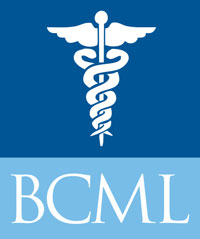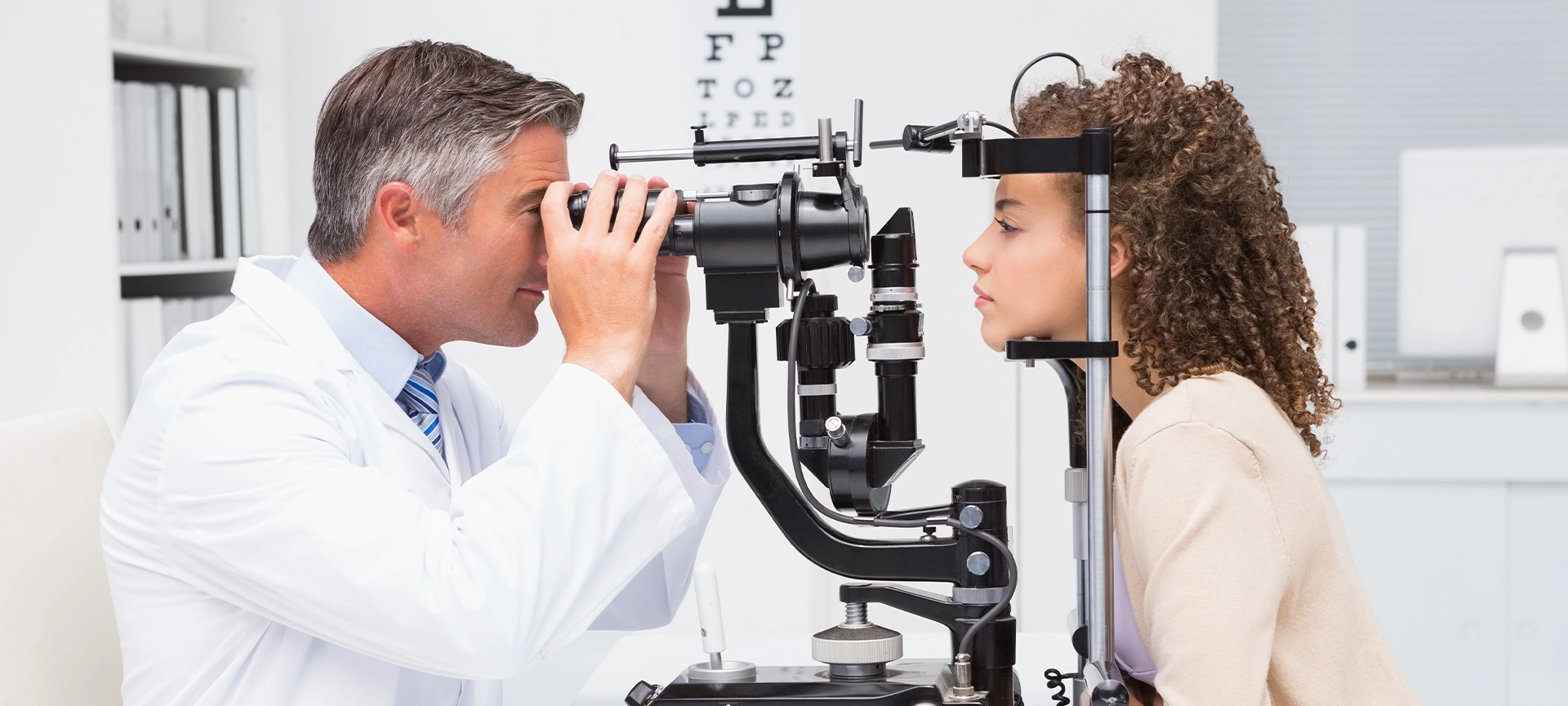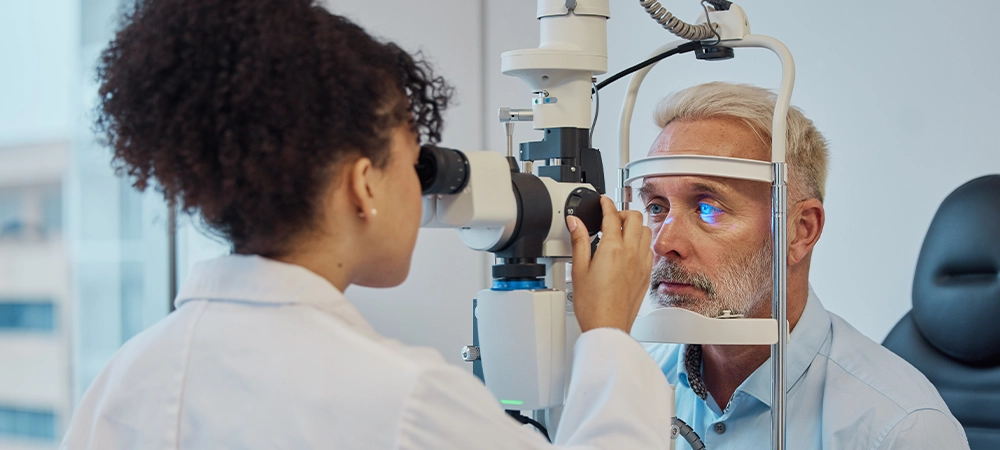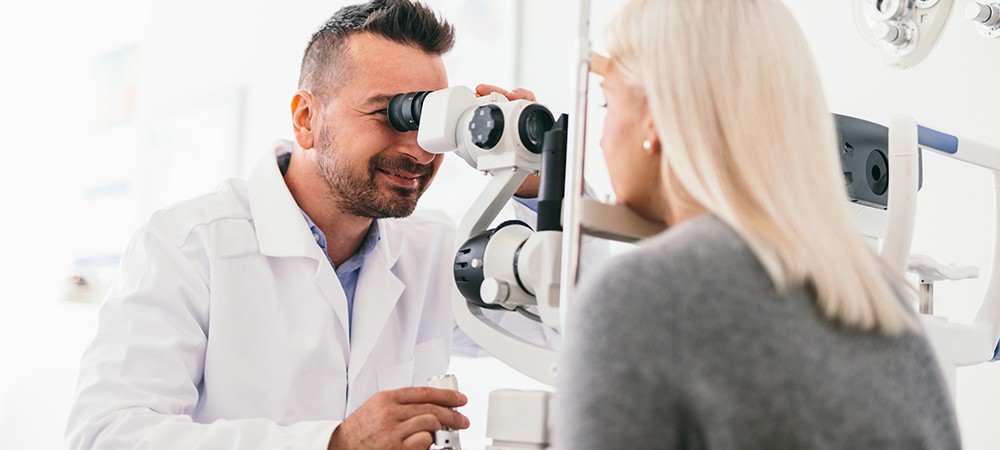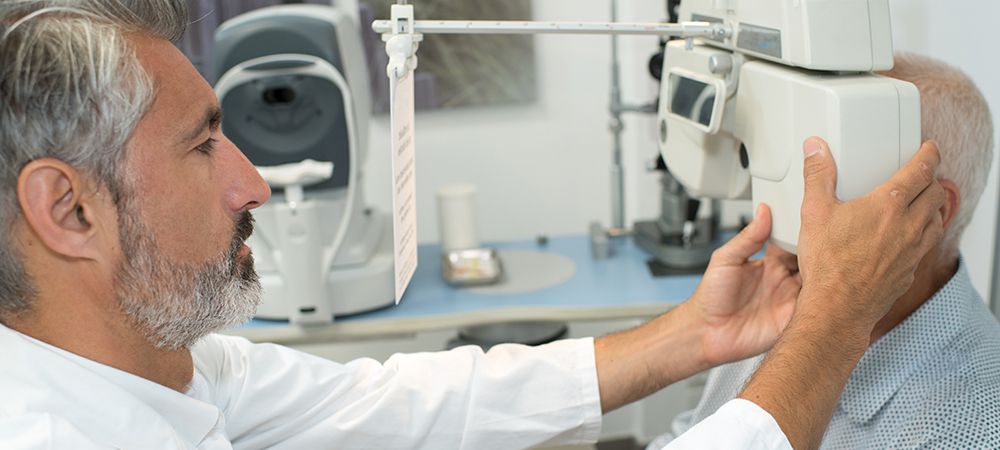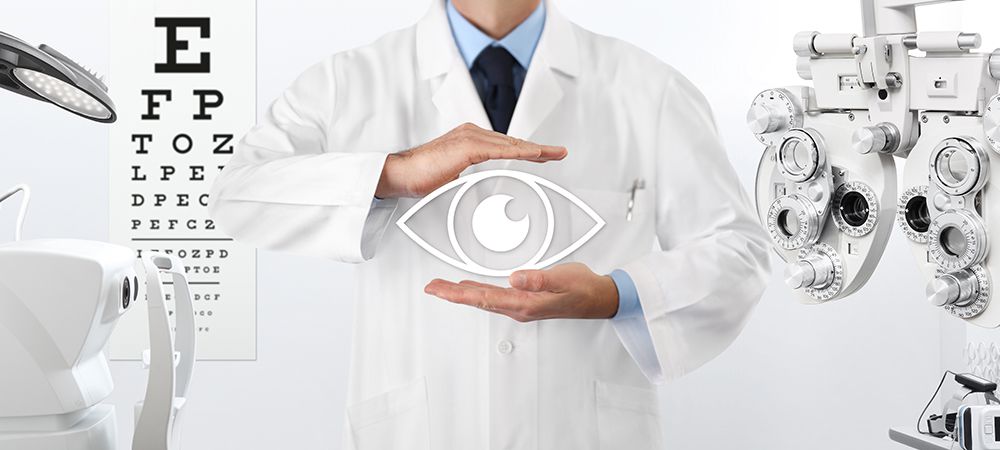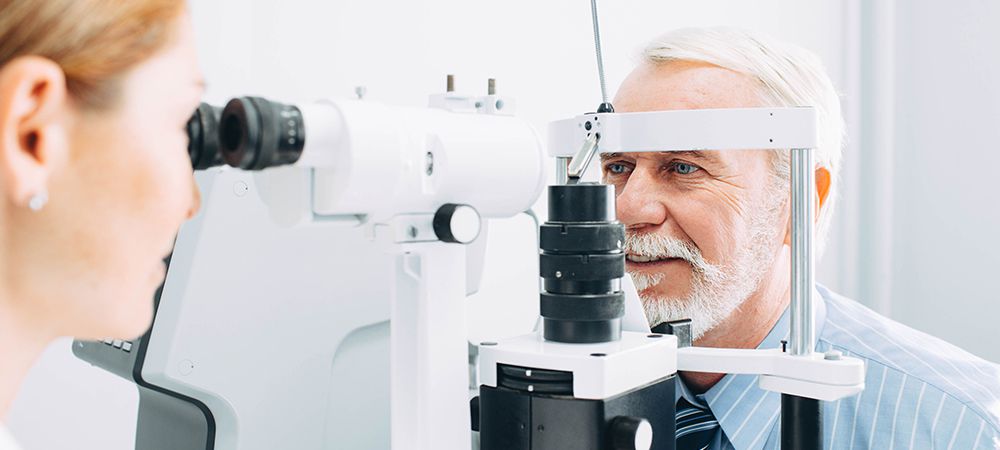Eye exams are often overlooked until something goes wrong. But regular checkups aren’t just for people with blurry vision. They’re a critical part of preventive healthcare, helping catch problems early before they become serious.
At Lockwood Clinic in downtown Toronto, we see patients in our optometric centre every day who are surprised to learn how much a simple eye exam can reveal. From dry eyes to diabetes-related changes, your eyes can say a lot about your health.
Why Eye Exams Are Important
An eye exam goes far beyond just checking whether you need glasses. It’s a full assessment of your overall eye health. And in many cases, a window into your broader medical condition.
During a comprehensive exam, your optometrist checks for refractive errors, including nearsightedness, farsightedness, and astigmatism. These are common vision issues that can usually be corrected with glasses or contact lenses, but without regular testing, they can lead to eye strain, headaches, and difficulty with daily activities like reading or driving.
Your eyes are also examined for early signs of serious diseases such as glaucoma, cataracts, and macular degeneration. These conditions often progress slowly and without pain, so you may not realize there’s a problem until your vision is already affected.
Importantly, eye exams can reveal systemic health issues too. Conditions like diabetes, high blood pressure, and even certain types of cancer can be detected through changes in the retina or blood vessels at the back of the eye. For some patients, an eye exam is the first indication that something bigger is happening in their body.
Your optometrist will also evaluate how your eyes move and work together, identifying problems with eye alignment or muscle function that can lead to double vision, discomfort, or reading difficulties.
And if you already wear glasses or contacts, regular exams ensure your prescription stays up to date, so you’re always seeing clearly and comfortably.
Skipping regular eye exams can mean missing the early warning signs of conditions that are much easier to manage when caught early.
Related Article: The Benefits of Early Vision Screening for Children: Ensuring a Bright Future with Clear Vision
Eye Exam Frequency by Age Group
Children (Up to Age 19)
- When: Once every year
- Why: Children’s vision changes rapidly. Eye exams help detect issues that could affect learning and development. Some problems, like lazy eye or crossed eyes, are easier to treat when caught early.
Adults (Ages 20–39)
- When: Every 2 to 3 years, unless you have symptoms or wear glasses or contacts
- Why: Vision tends to be stable in this age group, but it’s still important to monitor eye health and update prescriptions if needed.
Adults (Ages 40–64)
- When: Every 2 years, or as recommended by your eye care provider
- Why: This is when early signs of age-related eye diseases can appear, like presbyopia (trouble seeing close up), dry eyes, and early-stage glaucoma. Regular exams help manage these changes.
Seniors (Age 65 and Over)
- When: Once every year
- Why: Age-related conditions such as cataracts, macular degeneration, and glaucoma become more common. Annual checkups help maintain your vision and independence.
High-Risk Groups May Need More Frequent Exams
While standard eye exam guidelines work for many people, certain individuals face increased risks and may need to be checked more often. If you fall into a higher-risk category, your optometrist might recommend annual or even semi-annual visits to stay ahead of potential issues.
- You’re considered higher-risk if you wear contact lenses, especially on a daily basis. Contacts can increase your risk for dry eyes, infections, or corneal damage; problems that might go unnoticed without regular checkups.
- People with diabetes should also have yearly eye exams without exception. Diabetes can lead to diabetic retinopathy, a serious condition where blood vessels in the retina become damaged. This can lead to vision loss if not caught early.
- If you have a family history of glaucoma, macular degeneration, or other hereditary eye diseases, your chances of developing these conditions are higher. Early screenings can help track any changes over time and allow for timely treatment if needed.
- Certain medications can also affect eye health. Drugs used for autoimmune diseases, psychiatric conditions, or high cholesterol, among others, can sometimes cause dry eye, light sensitivity, or optic nerve issues. If you’re taking medication with known visual side effects, regular exams are key.
- Previous eye surgeries or injuries can change the way your eye functions long-term. Even if your vision seems stable, follow-up care is crucial to monitor for post-surgical complications or progressive damage from an older injury.
- People with high blood pressure or other vascular conditions are at risk for retinal changes due to poor blood flow. These changes often show up in the eye before other symptoms arise.
If you belong to one or more of these groups, don’t wait for a problem to schedule an appointment. Regular checkups help your optometrist track changes early and take action before your vision is impacted.
Related Article: The Role of Optometry in Maintaining Healthy Vision: Eye Exams and Vision Care
What to Expect During an Eye Exam
A comprehensive eye exam typically includes:
- Visual acuity testing (reading charts)
- Refraction (to determine your prescription)
- Eye muscle and movement tests
- Pressure measurement (for glaucoma screening)
- Dilated eye exam (to check the retina and optic nerve)
- Slit-lamp examination (to look at the structures at the front of your eye)
The process usually takes about 30 to 60 minutes, depending on your needs.
At Lockwood Clinic, our optometrists use up-to-date technology and techniques to ensure a comfortable, thorough exam. If needed, we can also refer you to specialists or coordinate with your family doctor right in the same facility.
Signs You Should Book an Eye Exam Sooner
Even if you’re not due for a routine checkup, certain symptoms mean it’s time to see an optometrist:
- Blurry vision or trouble focusing
- Frequent headaches
- Eye strain or fatigue
- Light sensitivity
- Floaters or flashes of light
- Trouble seeing at night
- Sudden vision changes
Don’t wait for these issues to go away on their own. Early attention often leads to easier treatment and better outcomes.
OHIP Coverage for Eye Exams
In Ontario, OHIP covers annual eye exams for:
- Children under 20
- Adults 65 and older
- Adults with specific medical conditions (e.g., diabetes, glaucoma, retinal disease)
If you’re between 20 and 64 and not part of a high-risk group, your eye exams may not be covered by OHIP, but many private insurance plans will reimburse the cost.
Our team at Lockwood Clinic can help you understand your coverage and provide receipts for any claims if needed.
Related Article: Finding a Walk-In Clinic in Toronto: A Guide to Convenient and Affordable Healthcare
Book Your Eye Exam Today
Your eyes do a lot for you. Take care of them with regular checkups, even if you don’t wear glasses or feel anything wrong. Prevention is powerful, and one simple eye exam could catch something early that changes everything.
At Lockwood Clinic, we make it easy to get quality care. Drop in or call ahead to book your next eye exam with one of our experienced optometrists. Your vision and your health are worth it.
